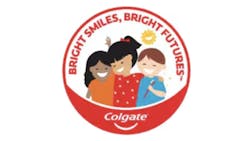Just in time for World Smile Day: Q&A with Dr. Maria Ryan, CCO of Colgate-Palmolive
With World Smile Day and Halloween both occurring in October, DentistryIQ thought this would be a perfect time to offer some insights into the importance of good oral health, especially during these upcoming and very tempting holidays. (Think sugar and calorie overload.)
We reached out to Maria Ryan, DDS, PhD, chief clinical officer of Colgate-Palmolive, for some of the oral insights that she’s noticed patients pay attention to. What can be done to guide children on the road to good oral health? And is their Bright Smiles Bright Future program something you might be interested in?
DentistryIQ: How is Colgate taking action to help spread awareness about the importance of proper oral care?
Maria Ryan: We know that prevention is key when it comes to oral diseases, but we also know that oral health literacy is very low. This is why Colgate-Palmolive is using its voice to help people to better understand that a healthy future starts with a healthy mouth.
One way we’re empowering people to take charge of their oral health is through our Know Your OQ oral health literacy initiative. This free, interactive quiz helps people assess their understanding of oral health through a 10-question assessment to discover their oral health quotient (OQ). The quiz assesses a person's understanding of the common oral diseases they face, the signs and symptoms of these diseases, the preventive strategies they can take, the connections between oral and overall health, and the importance of seeking dental care. We invite readers to visit knowyouroq.com.
We also partner with professional associations, including the American Dental Association and World Dental Federation, to share the importance of oral health literacy. Through collaboration with dental professionals and experts, we’re working to raise awareness and provide education on best practices for oral care. These partnerships enable us to support continued professional development, ensuring that oral health knowledge is passed on to communities worldwide.
DIQ: How has Know Your OQ already affected the oral health in people’s overall health?
MR: Know Your OQ makes an impact in addressing the oral health crisis for all by boosting people’s oral health literacy. In a study assessing the impact of the Know Your OQ campaign, we found that taking the quiz leads to significant improvements in knowledge about oral health issues and connections with overall health, attitudes about the use of toothpastes containing additives to aid in reducing caries and better managing periodontal disease, as well as practices regarding oral health routines.
Results showed that after taking the OQ quiz, 33% of people acknowledged that poor oral health affects other areas of physical health, and 97% reported that they recognize the importance of regular dental visits.
DIQ: With the school year well underway, what effect can oral health have on young people’s mental and emotional health and their academic performance?
MR: Consequences of oral disease don’t just affect the mouth. Research shows that poor oral care can have a severe impact on mental health, ranging from embarrassment and lack of self-confidence to severe mental illness, affective disorders, and eating disorders.
In a global study, Colgate learned that oral health issues can cause children to feel worried, embarrassed, sad, and anxious—in fact, research found that one-third of children are embarrassed to smile. These are all strong feelings that can impact other areas of their lives, including their academic performance and social development. The CDC reports that an average 34 million school hours are lost each year because of emergency dental care, with tooth discomfort being the most common reason for children to miss school, which leads to isolation.
A healthy mouth is essential for a child’s well-being: if someone has pain in their mouth, it’s harder to concentrate in school, eat well, hit developmental milestones, and even socialize with friends.
DIQ: Let’s talk social media. School kids are into it. How does Colgate steer them away from oral health online trends?
MR: Our best advice to boost oral health isn’t a trend at all and has remained the same for years: brush your teeth at least twice daily for two minutes with a fluoride-based toothpaste using circular motions, floss daily, and schedule regular dental visits. The dentist and hygienist are the best sources of oral health information. A long-standing program to educate children about the importance of oral health and preventive strategies is Colgate’s Bright Smile Bright Futures program, which has educational materials for children translated into 30 languages.
Social media is a powerful tool that has many benefits, but it can also spread harmful misinformation, including when it comes to new tips or trends in oral health. Many at-home remedies and wellness trends that have gained popularity recently, such as oil pulling or facial fitness chewing gum, have yet to have a proven positive impact on oral health. Half of all people globally suffer from cavities and other oral diseases like gingivitis and periodontal disease, and when left untreated, thesecan leave them susceptible to a number of conditions such as cardiovascular disease, diabetes, adverse pregnancy outcomes, cancer, and mental health issues.
DIQ: What is the Colgate Bright Smiles, Bright Futures Program and how does it help school children outside of the dentist’s office?
MR: Colgate-Palmolive established the Colgate Bright Smiles, Bright Futures program in 1991 to help improve the health and well-being of communities by providing oral health education and dental screenings to children. Since its founding, the program has reached approximately 1.7 billion children and their families in more than 100 countries.
It provides educational resources to schools and community and public health centers, as well as online, to help spread awareness about the importance of oral health and its impact on overall health. The program also includes simple actions everyone can take to promote good oral health. Our US-based program features eight state-of-the-art mobile dental vans that are equipped to provide free dental screenings and oral health education to underserved children in rural and urban communities.
DIQ: Can you share some anecdotes about the success of the program?
MR: All of us are so proud of the impact that Colgate Bright Smiles, Bright Futures has had on children and their families. Witnessing so many children, like Noel, a 9-year-old from Baltimore, participate in Colgate Bright Smiles, Bright Futures and learning how to keep their smiles healthy for a lifetime, is a reward in and of itself.
In the US, the Colgate vans reach 10 million children and families in a typical year. In 2023, we reached 65 million children and families in the US to provide free oral health education! We’re always working to expand our reach and bring Colgate Bright Smiles, Bright Futures to communities in need and we aim to reach 2 billion children by 2025.
DIQ: Anything we’ve overlooked that you would like to add?
MR: Many oral health conditions can be avoided by following a good oral hygiene routine that addresses issues before they can develop. Proper oral hygiene is also essential to our clinical success as oral care providers. We must reinforce oral hygiene instructions regularly with our patients to best control oral diseases and facilitate clinical success. If everyone owned and properly used a manual toothbrush and fluoride toothpaste, in addition to mouthwash and floss, it would save hundreds of billions of dollars, not to mention positively impact countless lives.
Many people are not aware of the staggering individual, societal, and global costs of poor oral health. As part of the World Economic Forum’s Oral Health Affinity Group, we worked with our partners to release a whitepaper that sheds a light on the economic rationale for a global commitment to oral health.
Thank you to Dr. Ryan for her time to discuss some programs and information that may be helpful and have an impact on your practice. Good luck coaching children and their parents through the upcoming holidays!
About the Author

Maria Ryan, DDS, PhD
Maria Ryan, DDS, PhD, is Chief Clinical Officer at Colgate-Palmolive, where she provides oversight and leadership to dental and dermal clinical organizations, knowledge management, scientific communications, and the biosolutions team. Dr. Ryan previously served as professor and chair of the Department of Oral Biology and Pathology at Stony Brook University. She is the past president of the American Association for Dental Research (AADR) and has received numerous awards. She has appeared on multiple media outlets to discuss the role of dental professionals in the provision of optimal overall health care.


